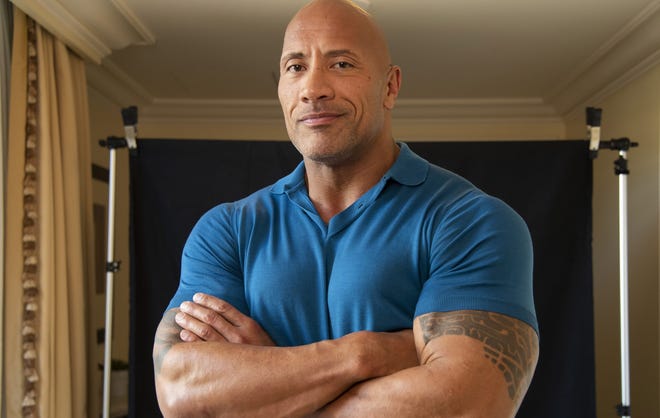
Asian, Pacific Islanders Lack Representation in Hollywood
By David Oliver
Asian and Pacific Islanders are scarcely represented in the film industry, according to a new study – and the numbers are more concerning when broken down by gender and sexual orientation.
Research from the USC Annenberg Inclusion Initiative found just 44 films featured an Asian or Pacific Islander lead or co-lead, 14 of which were Dwayne “The Rock” Johnson. Only six of those leads or co-leads were female – and none of those were women 40 years old and up. None were members of the LGBTQ community, either.
“We’re really seeing a complete erasure,” report co-author Stacy L. Smith says.
This comes as the AAPI community in the U.S. grapples with ongoing anti-Asian American hate incidents – which have proliferated in spite of more public awareness about the violence.
Smith adds: “We actually found that much of the storytelling prevalence and portrayal of the API community can contribute to norms, perceptions, beliefs and attitudes that are not only biased and prejudicial, but could lead to societal harm.”

The study (which received funding from Amazon Studios and the United Talent Agency Foundation) focused on leads and speaking characters in the 1,300 top-grossing films between 2007 and 2019. It also looked at primary and secondary Asian and Pacific Islander characters specific to 2019’s most popular films.
“Despite the more visibility of Asians in popular consciousness in popular culture, they are still not just quantitatively underrepresented, but they are qualitatively tokenized, isolated, and stereotyped, unfortunately, and they’re still not as complex as they could be,” report co-author Nancy Wang Yuen says.
The study found frequent emasculation of men and hypersexualization of girls and women with regards to API characters on-screen.
Overall, 39% of the films studied between 2007 and 2019 had zero Asian and Pacific Islander characters. This figure jumped to 59% specifically for Asian and Pacific Islander girls and women.
Across 600 films between 2014 and 2019, just 15 Asian and Pacific Islander characters were gay, lesbian or bisexual – none were transgender.
The report also revealed that some groups within the Asian and Pacific Islander community were more represented than others: Chinese and Indian people saw more representation than Filipino and Vietnamese people. There is a favoring of East Asians, Wang Yuen says, even though that isn’t necessarily reflective of the actual population.
“We’re trying to point out that there should be as many roles representing as much as the diversity of the API community in the United States,” Wang Yuen says.
There is also a lack of representation behind the scenes, the study found.Only 3.5% of the directors credited for the top-grossing films between 2007 to 2019 were Asian or Pacific Islander. Only three of these directors were women.
Smith says representation numbers would change rapidly if storytellers behind the camera received the same opportunities as their white male counterparts.
One positive change in recent years has been the high-profile Oscar wins of Chloe Zhao (“Nomadland”) and Bong Joon-ho (“Parasite”). Both films also went on to win best picture. Yuh-Jung Youn also won best supporting actress for “Minari.”
Wang Yuennotes that many Asian and Pacific Islander stories are told through a white lens by white directors and white writers; more representation behind the scenes could lead to more accuracy in front of screens.
“Not that Asian and Pacific Islander directors should only tell their own stories” – as was the case with Zhao’s “Nomadland” – “but that when those stories are being told, we need folks behind the scenes who understand the community who understand the issues, to be able to tell a complex, fully human story,” she says.







